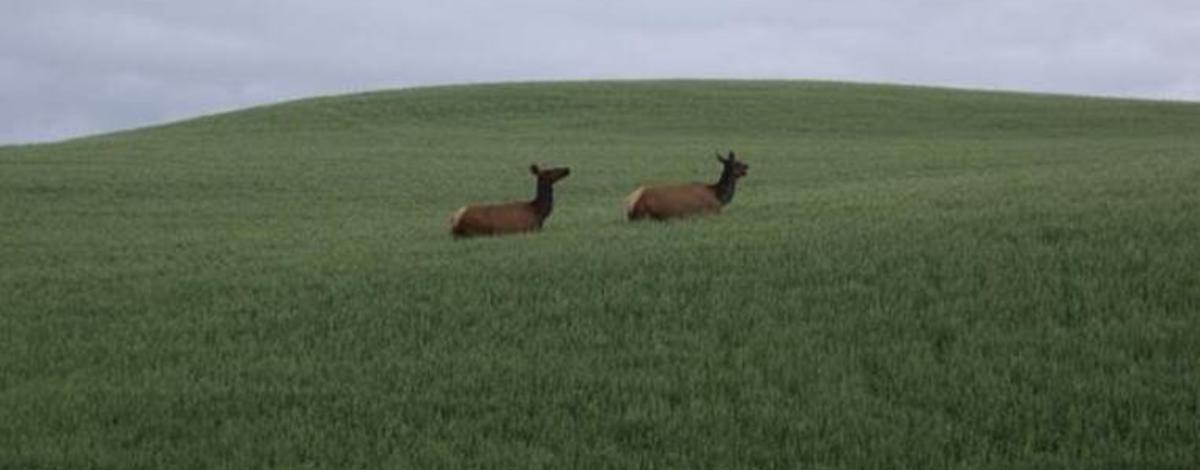With antlerless elk hunts taking place in the Salmon Region, the Idaho Department of Fish and Game reminds hunters that they can increase their success and avoid possible conflict by always obtaining landowner permission, knowing the area they intend to hunt and taking extra precautions to properly care for their harvest.
“Always get permission, scout the area beforehand, and plan for the heat,” says Dennis Newman, wildlife biologist for Idaho Fish and Game based in Salmon. “These are challenging hunts, but hunters who plan ahead and adjust to the conditions can do well.”
These local hunts, as well as other early-season hunts across Idaho, are designed to address chronic depredation problems. The goal is to control populations causing crop damage by harvesting or discouraging animals in specific areas or portions of units.
Early season hunts in the Salmon Region began August 1 and are open only on or within one mile of private agricultural lands in Big Game Management units 29, 36A, 36B, 37, 37A, and parts of units 21A and 28. Hunters are encouraged to review page 47 of the 2019 & 2020 Big Game Seasons and Rules brochure for special area definitions and descriptions.
Since the hunts occur on or near private land, hunters are encouraged to be aware of and follow Idaho’s recent trespass law that went into effect July 2018. Hunters are reminded that they must have written permission or other lawful form of permission to enter or remain on private land.
“There’s more information and a blank permission form on page 2 of the rule books,” Newman says. “Hunters are encouraged to visit with landowners well in advance and be sensitive to their concerns of fire, nearby livestock, equipment, and crops.”
Heat is a tricky challenge early season hunters face, and what to do with the meat after an animal is down. To prevent game meat from spoiling, hunters need to be prepared and act quickly to speed cooling.
“Animals should be immediately skinned, quartered and quickly transported to cold storage,” Newman says. “Some early season hunters even bone their animals out and use large ice chests to keep the meat cool and clean.”

